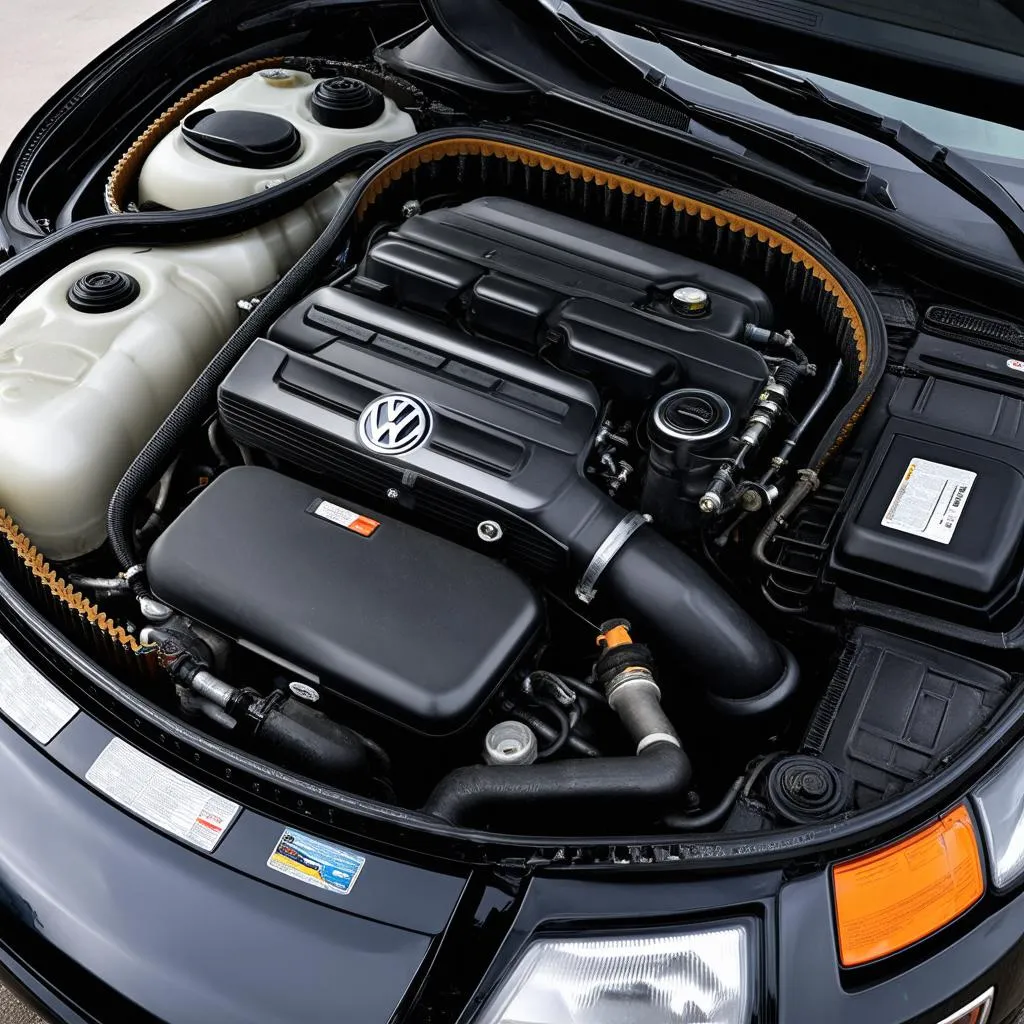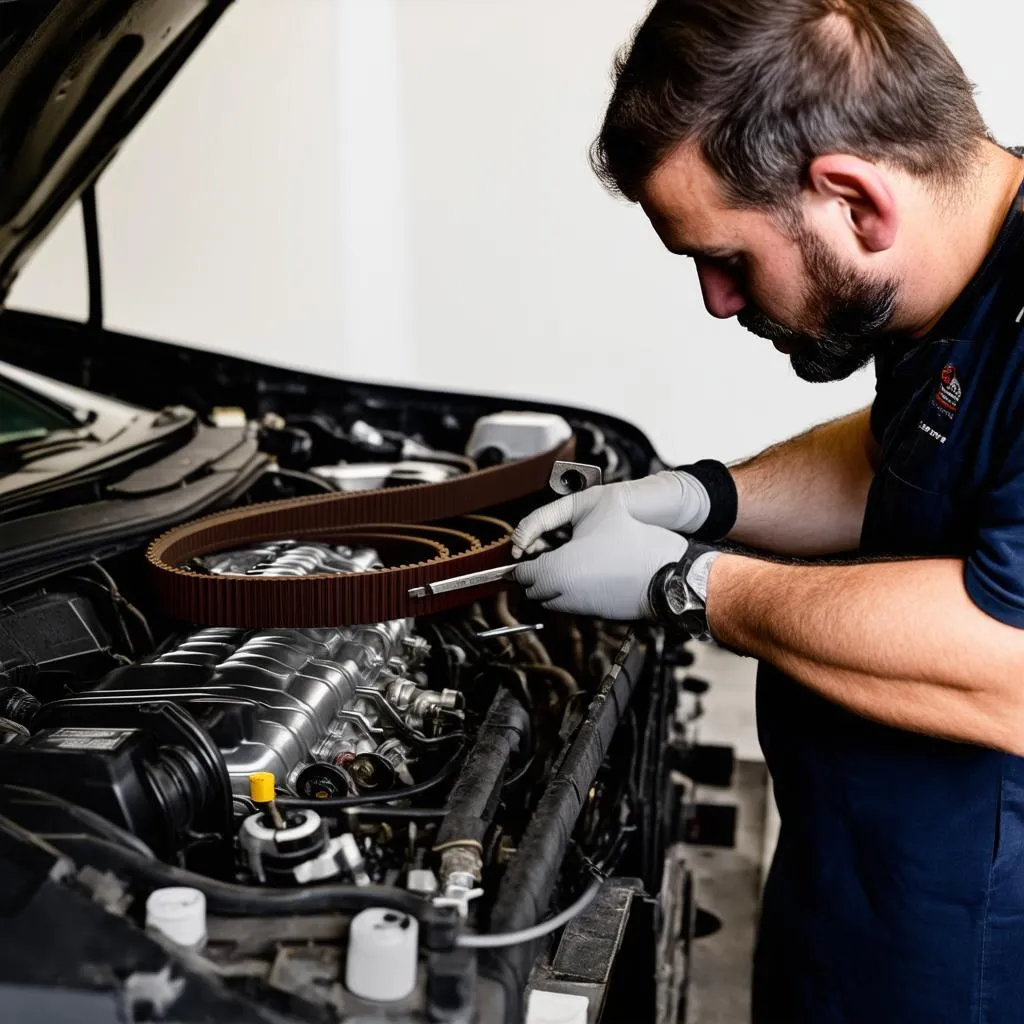VCDS B5 1.8T Timing Belt Check: What Every VW Owner Should Know
Imagine this: You’re cruising down the highway, the sun is shining, and your trusty 1.8T engine is humming along like a dream. Life is good, right? But suddenly, that dream turns into a nightmare as your engine sputters and dies. The culprit? A snapped timing belt.
For owners of Volkswagen B5s with the iconic 1.8T engine, the timing belt is a critical component that often sparks a lot of questions. One of the most common is, “Can I use VCDS to check my timing belt?”. Let’s delve into this question and more.
Understanding the Importance of the 1.8T Timing Belt
Before we dive into the specifics of VCDS, it’s crucial to understand why the timing belt is such a big deal. In simple terms, this belt synchronizes the rotation of your engine’s crankshaft and camshaft, ensuring that valves open and close at precisely the right time for optimal combustion.
Now, imagine what happens when this carefully orchestrated dance falls apart due to a worn or broken belt. The result can be catastrophic, leading to bent valves, piston damage, and a hefty repair bill.
 B5 1.8T Engine
B5 1.8T Engine
VCDS and the Timing Belt: A Common Misconception
Many Volkswagen owners, especially those new to the world of VCDS (Vag-Com Diagnostic System), wonder if this powerful tool can directly check the condition of their timing belt. Here’s the catch: VCDS can’t directly inspect the belt itself. Think of it like this, VCDS is like a doctor who can diagnose internal issues but can’t see through your skin to examine your bones.
So, What Can VCDS Do?
While it can’t assess the belt’s physical condition, VCDS can provide valuable indirect insights:
- Engine Speed Fluctuations: VCDS can monitor engine speed, and any unusual fluctuations or deviations from the norm could point towards a timing issue, potentially linked to a slipping or worn belt.
- Fault Codes: If your timing belt has already failed or caused other problems, VCDS can read the resulting fault codes stored in your car’s ECU. These codes can provide clues about what went wrong.
- Live Data: By observing live data streams related to ignition timing and other engine parameters, experienced mechanics can sometimes detect subtle hints of timing belt problems.
The Importance of Regular Timing Belt Inspections
Since VCDS can’t directly assess your timing belt, regular visual inspections are essential. Consult your owner’s manual for recommended replacement intervals, which are typically around 60,000 to 90,000 miles.
“Prevention is key when it comes to timing belts,” advises renowned VW mechanic, Hans Schmidt, author of “The Complete Guide to Volkswagen Engine Repair.” “Replacing the belt before it fails can save you thousands of dollars in potential engine damage.”
 Timing Belt Inspection
Timing Belt Inspection
FAQ: Common Questions about VCDS and Timing Belts
Q: Can VCDS tell me when my timing belt needs to be replaced?
A: No, VCDS can’t predict the exact lifespan of your timing belt. However, it can help diagnose potential timing-related issues that might indicate a worn or damaged belt.
Q: Should I still get my timing belt inspected even if VCDS doesn’t show any faults?
A: Absolutely! Regular visual inspections are crucial.
Q: What are some signs of a failing timing belt?
A: Common signs include:
- Engine misfires
- Ticking noise from the engine
- Difficulty starting the engine
- Loss of power
Beyond VCDS: A Holistic Approach to Car Maintenance
While VCDS is a powerful diagnostic tool for Volkswagen owners, it’s essential to remember that it’s just one piece of the puzzle. Regular maintenance, visual inspections, and timely part replacements are equally important for keeping your B5 1.8T running smoothly.
Need Help with Your Volkswagen Diagnostics?
Don’t let car troubles slow you down. Our team of expert mechanics is just a message away. Contact us on Whatsapp at +84767531508 for assistance with VCDS, timing belt inspections, and all your Volkswagen diagnostic needs. We’re here to help you keep your Volkswagen on the road and running at its best!
